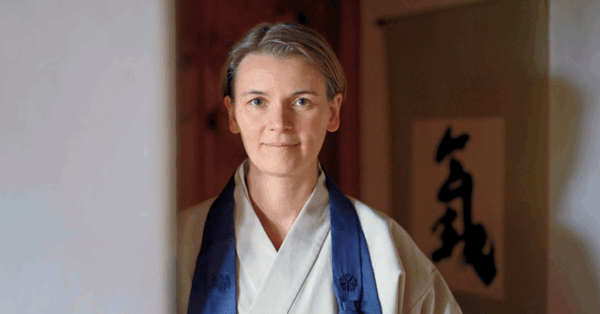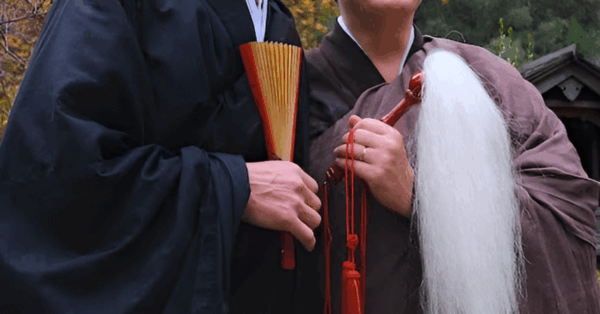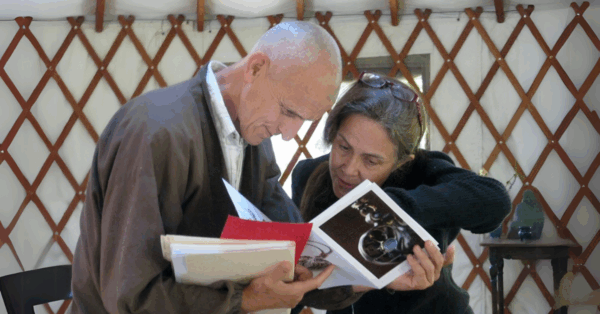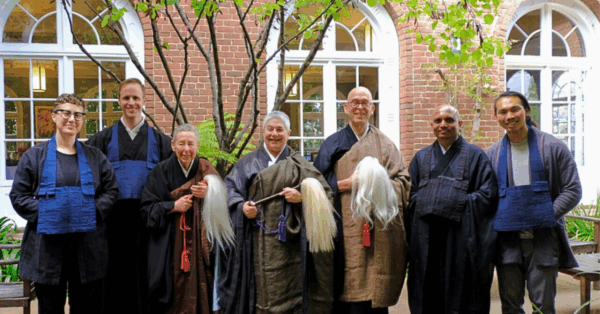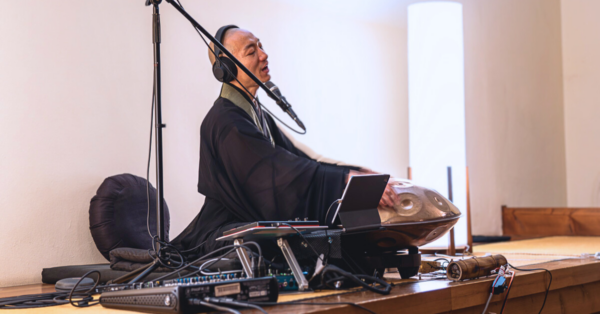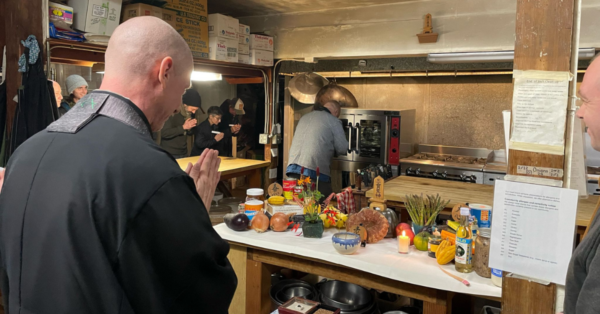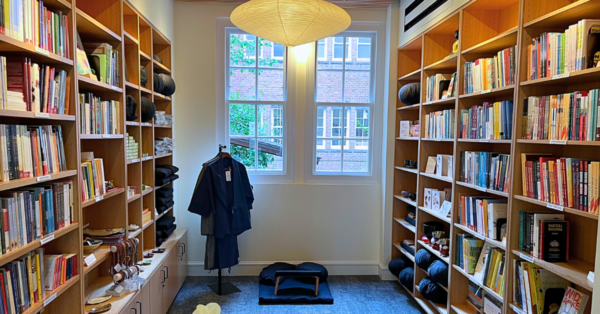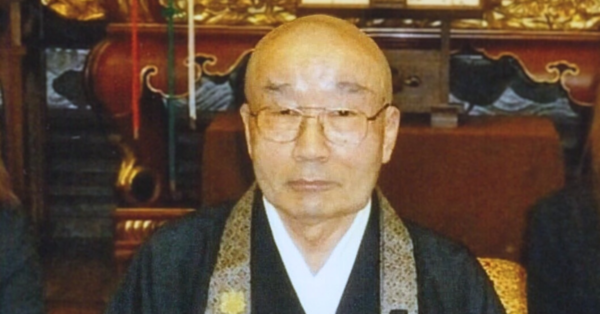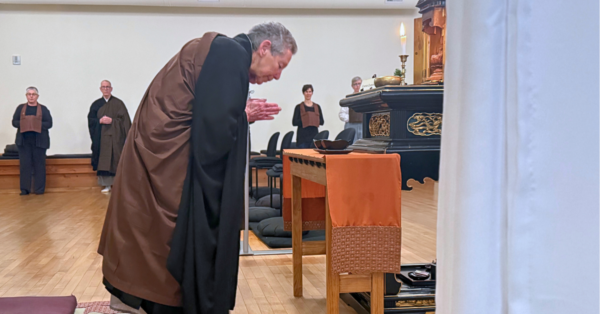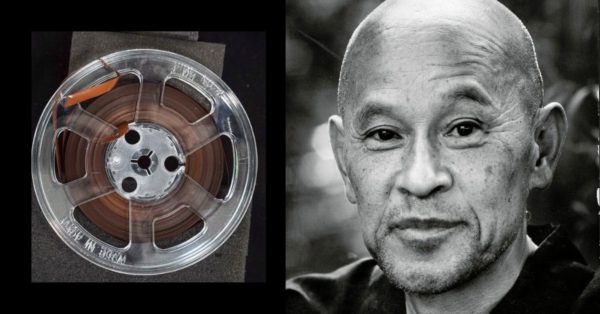
To listen to this talk, “Bodhidharma,” see the Suzuki Roshi Audio Archive where it is listed on the right side.
This talk was given by Suzuki Roshi at Tassajara on July 29, 1968.
Description:
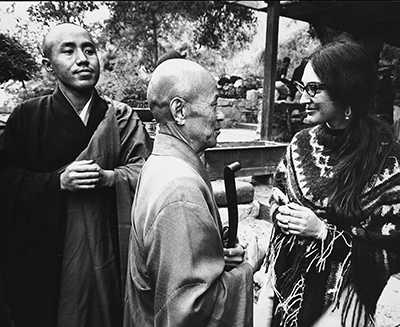
Kobun Chino, Shunryu Suzuki, and a visitor, Helene Knox, at Tassajara in the summer of 1967. Photo by Minoru Aoki.
In this second tape made by Dan Gourley at Tassajara in the summer of 1968, Suzuki Roshi starts by answering a question about a scroll of Bodhidharma. In the previously existing recording, once he got up from his seat and went over to where the scroll was hanging, what he said was inaudible, but on this recording we can hear his whole talk, and a question and answer session with the students.
Handling and treating objects with care is an important part of Zen practice, and Suzuki Roshi explains different aspects of caring for scrolls, before going on to tell some historical stories about Bodhidharma, his place in the Zen lineage, and his well-known exchange with Emperor Wu, which he suggests can be considered the first koan story (indeed it is placed at the beginning of the Blue Cliff Record collection that Suzuki Roshi lectured extensively on over the years).
During the talk and his answers, he touches on the philosophies of different schools of Buddhism from that time, and various topics that some of his students would have been familiar with: the “third view” of the Tendai school, which he had discussed several times in his lectures on the “Genjo Koan”; the discontinuity of time. This is also one of the few occasions where he returns to the theme of beginner’s mind, in response to a question—this is a couple of years before the book was published, but the transcripts had been excerpted in the Wind Bell (p63) the year before.
Most extensively, he talks about the “first principle,” which had started to come up earlier in the year when he lectured on the Lotus Sutra at Tassajara, and would again in the subsequent series on the sutra, as well as later lectures: “the first principle is, you know, the principle which is—which you cannot talk about. And which we transmit to master—from master to master, from patriarch to patriarch. But the teaching which we transmit has—is not written, you know. So how to transmit it to one person (?), that is the point we should study [laughter].” (33:17)
Contrasting the way that people strive for a fairer distribution of profits, or expecting to find paths to the truth through government action on equality, Suzuki Roshi notes, “from our viewpoint, it is absolutely wrong, you know, understanding of fair, or truth. Truth is not here, you know. The truth is something which we cannot, you know, bring it perfectly into our everyday life… For us, it is too much to expect for government. We cannot expect so much for the government.” (1:20:43)
There is no perfect life to be had, just as we cannot fully grasp or understand the first principle; “that is why Zen put emphasis on our practice. Whatever the teaching is which was told by someone, is not absolute teaching.” (39:21)
- To view all of the talks that have currently been released and to learn more about this project, see the Suzuki Roshi Audio Archive.
- Please donate to the preservation of San Francisco Zen Center’s audio archives.
- Non-monetary support is also welcome. This collection of talks is a living, evolving archive that depends on input from people like you to unlock the wisdom it contains. Several of the newly discovered talks are in need of transcription, and nearly all can benefit from listeners adding descriptions and keyword tags to improve searchability. To get started, visit the Suzuki Roshi Audio Archive page for many ways to engage.


